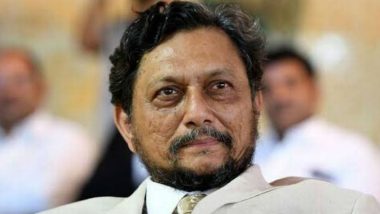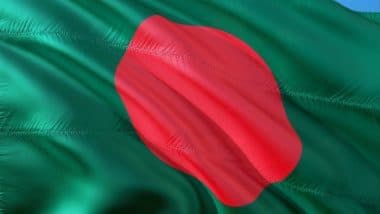New Delhi, February 22: The rule of law is probably the "most fundamental feature" of modern constitutions and its success depends on how judiciaries across the world respond to emerging challenges, Chief Justice S A Bobde said on Saturday. The CJI, while speaking at the International Judges' Conference on the subject of 'Judiciary and the Changing World' at the Supreme Court here, also stressed on the need for citizens to perform their legal duties.
"Probably the most fundamental feature of most modern constitutions is the idea of the rule of law," he said, adding, "Undoubtedly, the success of the rule of law in our countries depends on how the judiciaries respond to such challenges and how they emerge." Justice Sharad Arvind Bobde Takes Oath as 47th Chief Justice of India.
Referring to Constitutional provisions, Justice Bobde said it was often implicit in law that "legal rights have correlatives of legal duties." "A feature often neglected is a chapter on fundamental duties imposing on every citizen the duties to abide by the constitution, the whole of it and respect its ideals and institution," he said.
The CJI said more than 50 countries have specific provisions on fundamental duties in their constitutions. Quoting Mahatma Gandhi, Justice Bobde said the exercise of rights depends on one's sense of duty and "real rights are a result of performance of duty".
The CJI also referred to "incredible technological advancement" and said now the entire world was interconnected and a small change in one corner of the world can result in changes in different parts of the world. "Judiciaries all over the world are dealing with this kind of change, what might be called a rights revolution, a technological revolution and a demographic revolution. Our decisions no longer impact only those who live in our jurisdiction but also those who live in other jurisdictions, some far away," he said.
Wishing success to the first such conference organised by the Indian Supreme Court in which judges from over 20 countries are taking part, he said this would offer opportunities to judges "to exchange ideas and gain knowledge from each other on many aspects of gender justice, right to privacy, populism, environment and sustainable development."
He said the Constitution has created a "strong and independent judiciary" which was separated from the executive and the legislature. "We have strived at every turn, not just as a judicial institution but also as a citizenry to keep these basic ideals intact," he said.
The CJI then delved into the 2,000-year-old history of Indian jurisprudence and said, "India had a well-established system of courts. The rules were all contained in the scriptures which prescribed a mandatory open hearing in courts in the presence of officers of the court."
He also referred to 'Vyasa Smriti' and said it provided "various stages of a valid decision" and they were the "plaint, written statement, issues, evidence, it's analysis, argument of the lawyer, provisions of law and that the decision" which contained a royal seal on it.
Referring to the ancient practice of imparting justice by village panchayats in the north-eastern parts of India, he said, "For instance the chicken liver test - in the absence of any direct evidence, the priest selects a small chick, cuts its neck, removes its liver, examines it and hands it over to the other members of the panchayat for examination.
"The panel then decides collectively on whether the accused is guilty post the examination of the liver." He said there was also a practice of taking oath holding the tooth of a tiger and there was fascinating diversity in India. Terming India as "a melting pot of myriad cultures and traditions", the CJI said, "We have assimilated legal cultures of all the civilisations that have come to our shores - the Mughals, the Portuguese, the French, the Dutch and finally the English."
Attorney General K K Venugopal also spoke at the gathering. He raised the issue of poverty and referred to the steps and welfare projects undertaken by successive governments to eradicate it. "Now, one should realise that India is a vast country and when we got freedom and the Constitution was adopted in 1950, the census showed that 70 per cent of the people were living below the poverty line," the top most law officer said.
"That is what was the state of the country after 200 years of British rule. Now, this has been reduced today to 21 per cent and that I think is through the efforts of the government," he said. He said the government has brought in a series of reforms including social ones.
Venugopal also referred to schemes like Mahatma Gandhi National Rural Employment Guarantee Act (MGNREGA), Prime Minister life insurance scheme, health scheme and the law on food security. "Wherever the State, in the nature of the government, has failed to produce results in some areas where there may be gaps, then in such a case the Supreme Court has stepped in...," he said.
Venugopal said he hoped that poverty would be eradicated from the country in the next few years with the collaborative efforts of the government and the top court.













 Quickly
Quickly




















